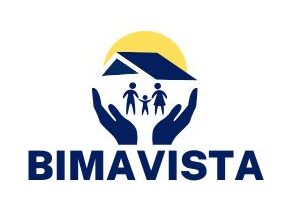Liability Insurance
Liability insurance protects individuals or businesses against legal claims for injury, property damage, or negligence, covering legal costs and compensation.


Frequently Asked Questions
Q1. Is liability insurance only for businesses?
No. While most policies are for business use, some like lift liability can be for apartment buildings too.
Q2. What happens if I don’t buy a compulsory liability policy?
It’s a legal offence. You may face penalties, and you’ll also be stuck paying huge compensation yourself.
Q3. If someone sues me, will liability insurance pay the legal costs?
Yes. These policies typically cover both the compensation amount and legal defence costs.
Q4. Can a policy cover both product and public liability together?
Q4. Can a policy cover both product and public liability together?
Usually no. These are sold as separate policies because the risks and pricing models are different.
Q5. What if an employee gets injured while commuting? Will ECI cover it?
Generally no. Employee Compensation Insurance covers injuries during work hours and activities, not regular commuting, unless the policy is extended.

When Accidents Aren’t Just Accidents
No matter how careful we are, accidents and mistakes can happen, on our property, at our business, or even because of something we made or said. When these incidents harm other people or damage their property, we may be legally required to compensate them.
That’s where Liability Insurance steps in. It helps cover financial losses when a third party demands compensation due to your actions, negligence, or even professional mistakes.
Let’s break down the key types of liability policies available:
- Compulsory Public Liability Insurance
Who needs it?
Anyone handling hazardous substances, like factories or chemical plants.
Why it matters:
It’s a legal requirement under the Public Liability Insurance Act, 1991. If your operations accidentally harm people or their property, this policy ensures victims get paid quickly, even if it wasn’t your fault.
Example compensation:
Type of Injury/Damage | Compensation |
Fatal Accident | ₹25,000 |
Medical Expenses | Up to ₹12,500 |
Property Damage | Up to ₹6,000 |
Special Note:
You must contribute an equal amount of the premium to the Environment Relief Fund. If total damages exceed your insured limit, the fund will cover the rest.
- Public Liability Insurance (Industrial / Non-Industrial Risks)
What it covers:
- Personal injury or property damage caused by your negligence
- Legal fees and compensation to third parties
Who needs it?
Offices, shops, godowns, hotels, cinema halls, and more.
Not covered:
❌ Product faults
❌ Pollution
❌ Employee injuries
❌ Transport-related damage
- Product Liability Insurance
Why you need it:
If something you manufacture—like food, cosmetics, appliances, or chemicals—harms a customer, they can sue you. This policy protects you.
Covers:
- Death, injury, illness
- Property damage due to faulty products
- Domestic and export sales
- Lift (Third Party) Liability Insurance
For whom?
Building owners with elevators or lifts.
What it covers:
- Injuries to outsiders using the lift
- Damage to third-party property due to lift malfunction
- Professional Indemnity Insurance
Who needs it?
Doctors, lawyers, architects, consultants, chartered accountants, engineers, etc.
Why:
If you make a mistake in your professional work that harms a client (like misdiagnosis or wrong advice), they can sue. This policy covers your legal liability and expenses.
- Directors & Officers (D&O) Liability Insurance
Purpose:
Covers senior company executives against claims made by shareholders, employees, or creditors for mismanagement, fraud, or poor decisions.
Who takes it?
The company takes this policy to protect its leadership team.
- Employee Compensation Insurance (ECI)
Also called: Workman’s Compensation Insurance
Why it matters:
If an employee is injured or falls ill due to their work, the employer is legally responsible. This policy helps pay compensation, hospital costs, and more.
Two options available:
Table A (Full Cover)
- Covers legal liability under the Employees’ Compensation Act, 1923, Fatal Accidents Act, 1855, AND Common Law.
- This is the most complete protection.
- If your employee gets injured or dies while doing their job, this policy will help you pay all compensation required by law.
- Recommended for all employers.
Table B (Limited Cover)
- Covers liability only under the Fatal Accidents Act and Common Law.
- Doesn’t include compensation under the Employees’ Compensation Act.
- So, you’ll have to pay personally if the court asks for compensation under that Act.
- Usually taken only by small employers or those looking to save premium (but not advised).
Can be extended to cover:
- Medical/hospital expenses
- Occupational diseases
- Contractors’ employees
NOTE: What’s the Difference Between “Statutory” and “Optional” Liability?
- Statutory Liability: You must buy it if the law says so (like the Public Liability Act).
- Optional Liability Policies: You can choose to get extra protection (like product liability or D&O insurance) depending on your business risk.
